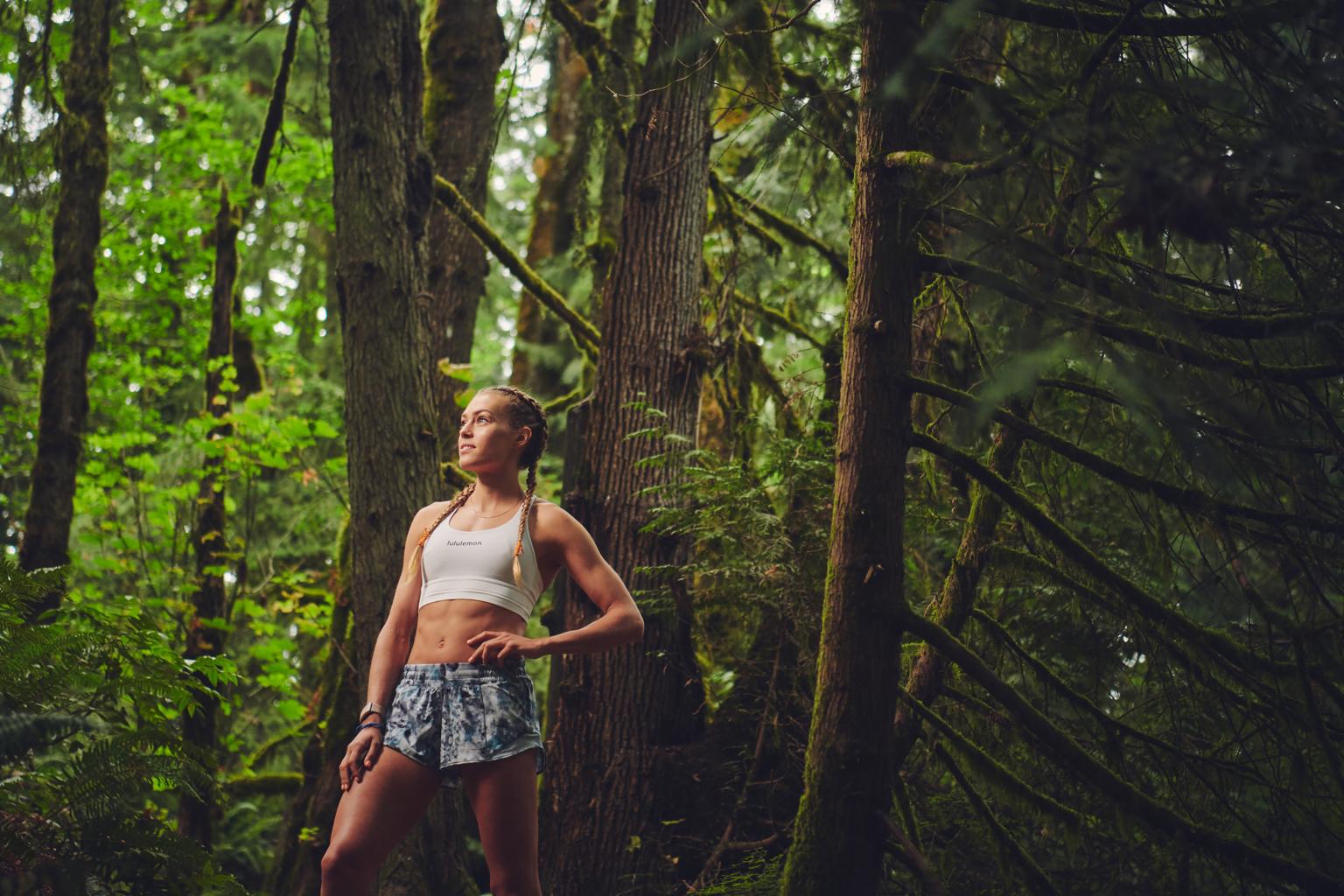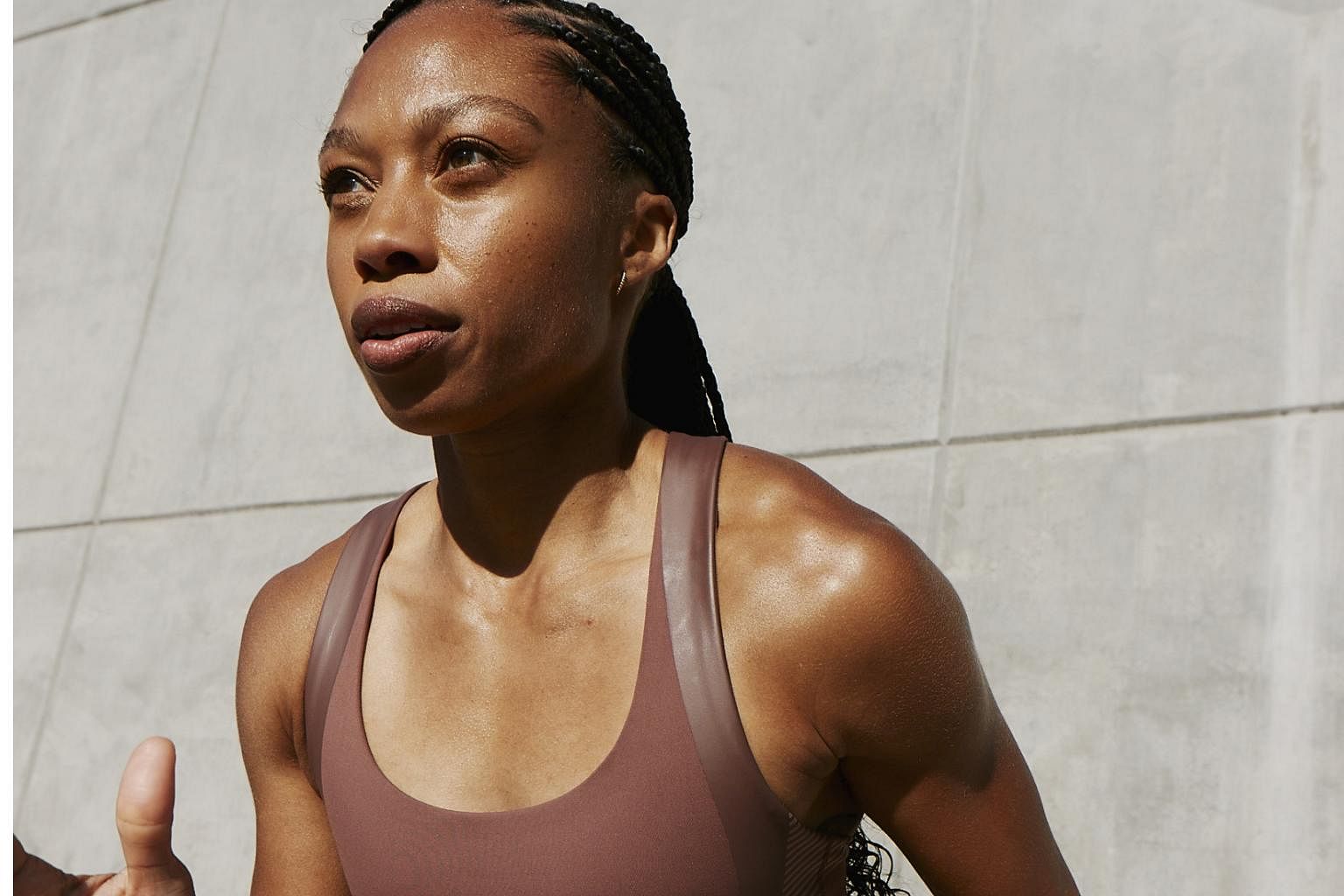Smaller activewear brands a hit among female athletes
Sign up now: Get ST's newsletters delivered to your inbox

Steeplechaser Colleen Quigley is among athletes who has opted to strike new types of deals with smaller activewear brands.
PHOTO: NYTIMES
(NYTIMES) - Athleta, the activewear brand for women and girls owned by Gap, had never sponsored an athlete when it approached six-time Olympic champion sprinter Allyson Felix in 2019.
The smaller company was interested in supporting Felix's career, and said it would not penalise her for losing races or choosing to have more children.
She said she liked that Athleta was led by women and that it appreciated that she was a mother as well as an athlete. "It's a very pressured situation to be sponsored traditionally in track and field - it's about numbers if you don't perform, reductions and all of these things," Felix said.
With Athleta, she added: "I felt like I had more value as a person and that was something I hadn't experienced before."
A growing number of top women athletes, including Simone Biles and former Olympians, have been choosing to strike new types of deals with smaller activewear brands instead of traditional sponsors like Nike. Several young female runners say smaller brands are willing to work with them in different ways, like bringing them on as employees, giving them equity or involving them in new products, and that they are paying more attention to their personal stories and Instagram accounts than their race performance.
Bigger apparel companies like Nike and Adidas are established power players that can often drastically increase an athlete's visibility through marketing. But critics say they do not always put the athletes first. Nike, for instance, has come under intense scrutiny in recent years for its treatment of pregnant athletes, accusations of bullying and restrictive contracts.
Runners have traditionally been paid by sponsors for achievements like completing a specified number of races per year or attaining certain rankings, medals and times. To some, it felt "very transactional", said steeplechaser Colleen Quigley who left Nike this year and is now sponsored by Lululemon.
That financial incentive fuelled an intense pressure to compete, even if an athlete was struggling or injured, and can have a deleterious psychological impact, she said.
Biles ended her sponsorship with Nike earlier this year and moved to Athleta, noting that with the smaller brand, "it wasn't just about my achievements, it's what I stood for and how they were going to help me use my voice and also be a voice for females and kids".

After she dropped out of the US gymnastics team at the Tokyo 2020 Olympics, saying the pressure she faced had adversely affected her mentally, Athleta issued a statement of support.
"We stand by Simone and support her well-being both in and out of competition," Ms Kyle Andrew, the company's chief brand officer, said in a statement. "Being the best also means knowing how to take care of yourself. We are inspired by her leadership today and are behind her every step of the way."
Female athletes say it has not always been that way.
"As athletes, we're always going to struggle with that sense that we only have value if we can run fast, jump far or throw far," Quigley said. "It's not true, but it can feel that way really easily."
Platforms like Instagram have become a particular asset for athletes, especially those in sports that typically command major attention only once every four years. They also give athletes a way to be valued by sponsors regardless of their ranking.
Ms Nikki Neuburger, Lululemon's chief brand officer, said it was aiming to work with mindful, well-rounded athletes, and that the brand and its customers cared less about placements and records.
"There's still so much tremendous recognition that comes with winning and performing at an elite level," she said. "What's changed over time is that in and of itself, that's not what's inspiring people - they want to know the highs and lows of the journey to get there, they want to know what you're doing outside of the track and not just on race day."
The new sponsorship opportunities are arising as the athletic apparel market continues to grow. Athleta and Lululemon were among the rare apparel brands that saw sales soar last year.
"The athletic sportswear and athleisure market is transforming from growth to maturity with newer and rising entrants," said Associate Professor Angeline Close Scheinbaum, who teaches marketing at Clemson University. "So naturally, a shift in athlete endorsers from the market leader to other brands is occurring."
She viewed the trend as less of an exodus from established leaders and more about "athletes, especially women, joining a smaller brand that can become synonymous with these star athletes and their platforms and stories".
Athleta's Ms Andrew said corporations were beginning to prize "female values" across the board. "There are companies that don't need to set up their partnerships in the same way they set them up for male athletes," she said. "There are ways of supporting athletes in a female-forward way and I do think it's a change and female athletes are looking for more because like most women, we're not just one thing in our lives."


